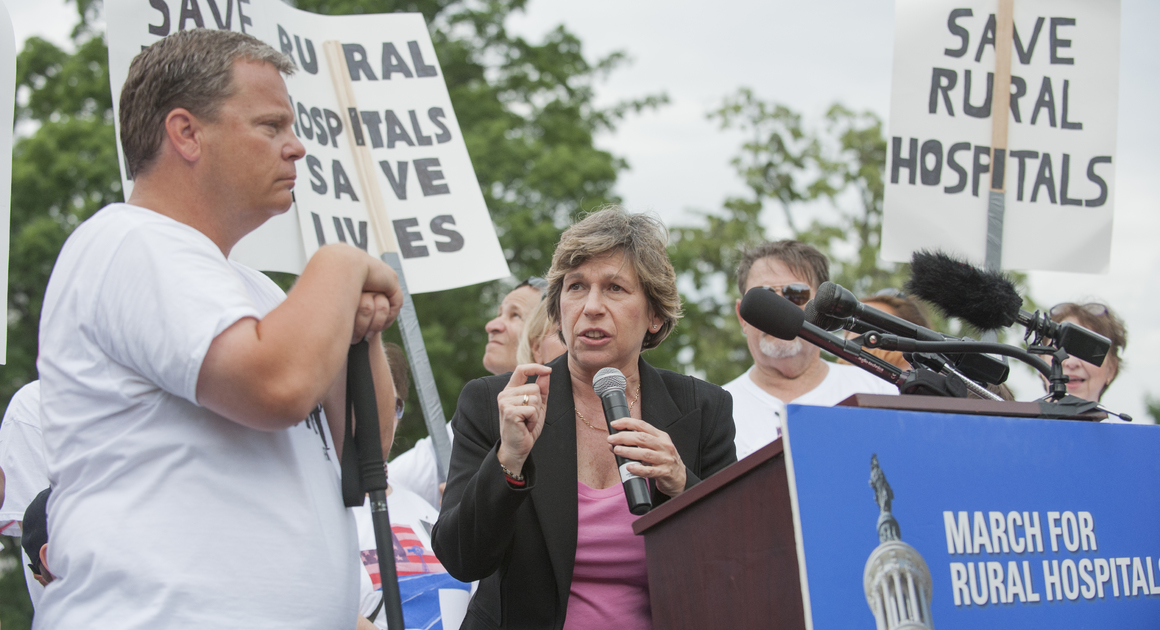AFT demands Healthcare NOW!

Weingarten led protesters from the lawn toward the building as Republican senators returned from a meeting with President Trump about the party’s controversial policy agenda that would strip access to healthcare services from 23 million people in order to provide tax breaks for the nation’s wealthiest families.
The energy in Washington, D.C. has been palpable over the last few months, as U.S. lawmakers were implored to side with patients and vote against the Republican plan, by unions and civic organizations which organized daily protests and other demonstrations. Nurses, teachers and other AFT-represented workers traveled from their home states to speak at press conferences, visit with lawmakers and take part in demonstrations at the U.S. Capitol with coalition partners and members of communities. And the resistance has expanded well beyond Washington.
More than 47,000 people participated in an AFT telephone town hall meeting where Weingarten was joined by a U.S. senator and the head of a grass-roots resistance nonprofit organization, Indivisible, in ushering a broad-based call to action of activists for visible, public opposition to the Republican healthcare plan. AFT members and other activists mobilized in every state of the country to ensure their elected officials understand the deep-seated resistance to the repeal plan. They delivered hundreds of thousands of letters and signed petitions, ceaselessly made phone calls, and participated in other peaceful protests.
AFT affiliates went beyond simple resistance, like in the state of Wisconsin, where nurses and health professionals helped found an organizing co-op to fight for healthcare for all. Citizen pressure on lawmakers was effective. Several Republican lawmakers voiced concerns about the impact the law will have, delaying a vote on the bill until after a Congressional recess in the first week of July (to commemorate the U.S. Independence Day).
When lawmakers traveled to their home districts for the recess, AFT members joined thousands in their communities, hoping to be heard by their elected officials that the Republican healthcare plan would be catastrophic to millions. Democrat allies in Congress held events in their districts to assure voters of their staunch opposition to the healthcare plan. Republican lawmakers, however, largely refused to meet with their constituents to discuss their healthcare plan during the break.
When lawmakers returned to Washington, the seeds of civic advocacy took firm roots; the Republican healthcare bill fell flat. The pressure brought to bear on Republican senators was immense. And at last, they caved in to the people’s demand.
It is no secret that the U.S. healthcare system is among the most corporatized and costly, with relatively poor outcomes in relation to other developed nations. Policies that further drive up costs and strip access from the nation’s most vulnerable people are not the answer. The recent victory against repealing the Affordable Healthcare Act is a step in the right direction, because the alternative proposed would have left 22 million people more without assurance by 2026. We have to go further in the coming period, to ensure universal health coverage for everybody in the United States.
